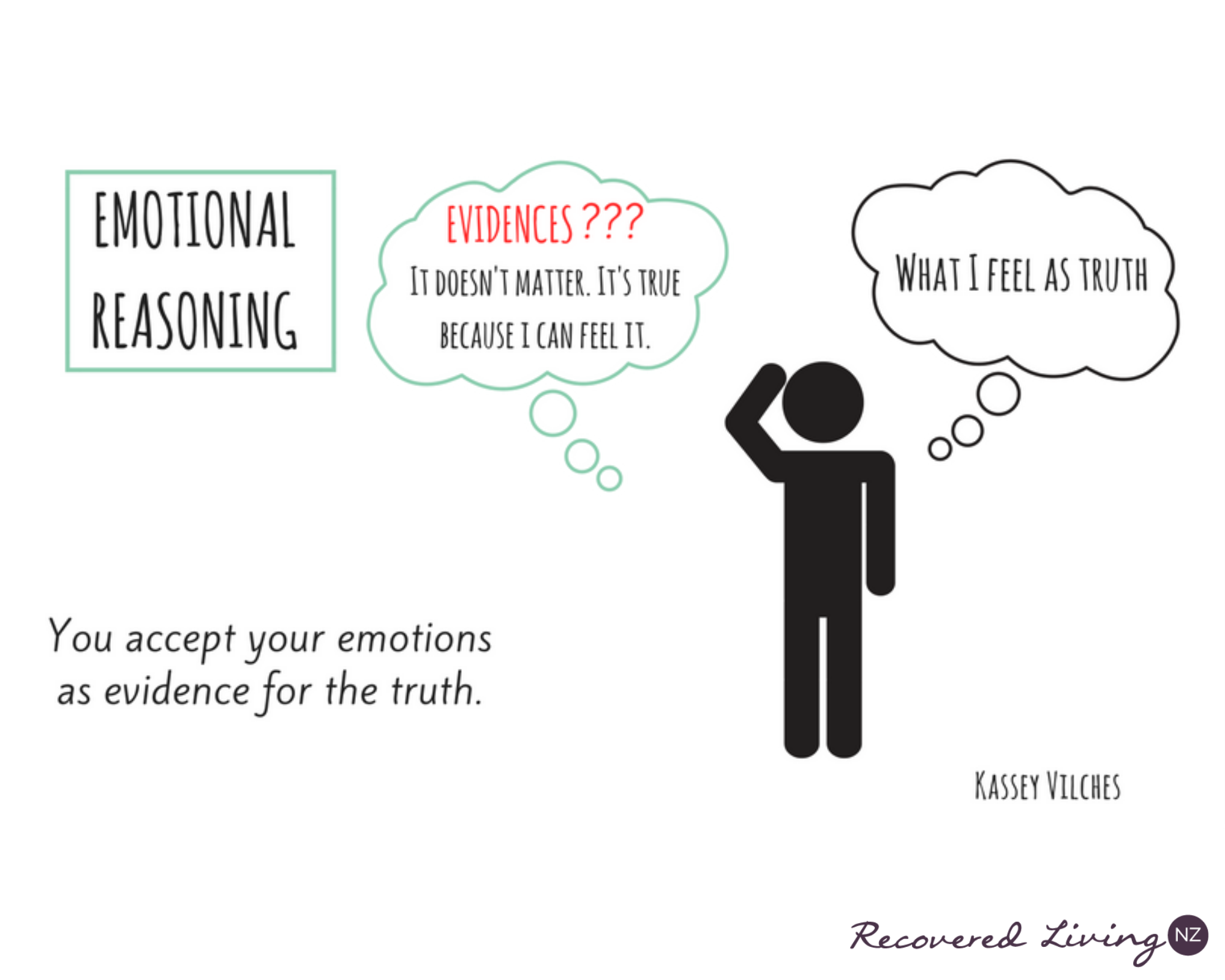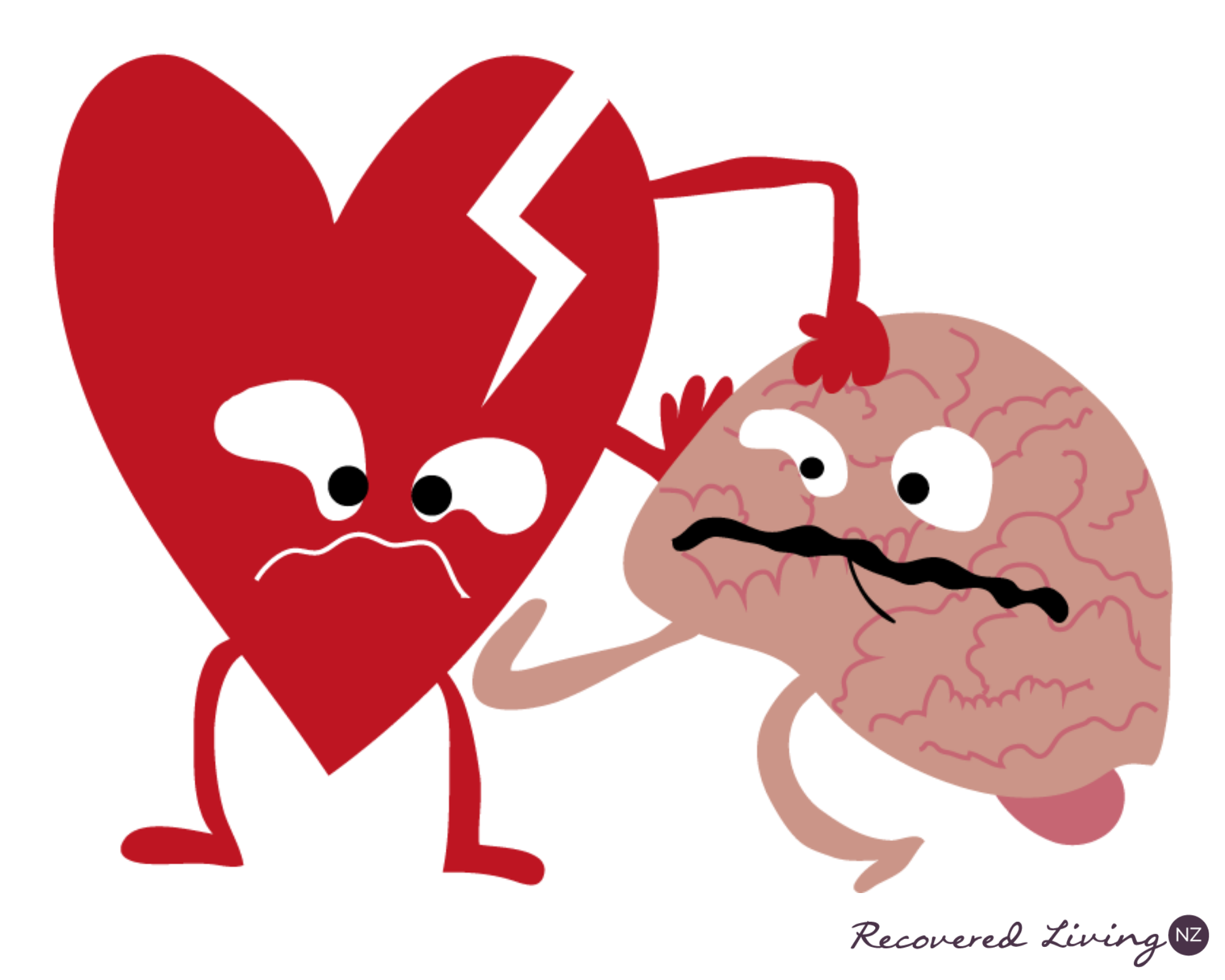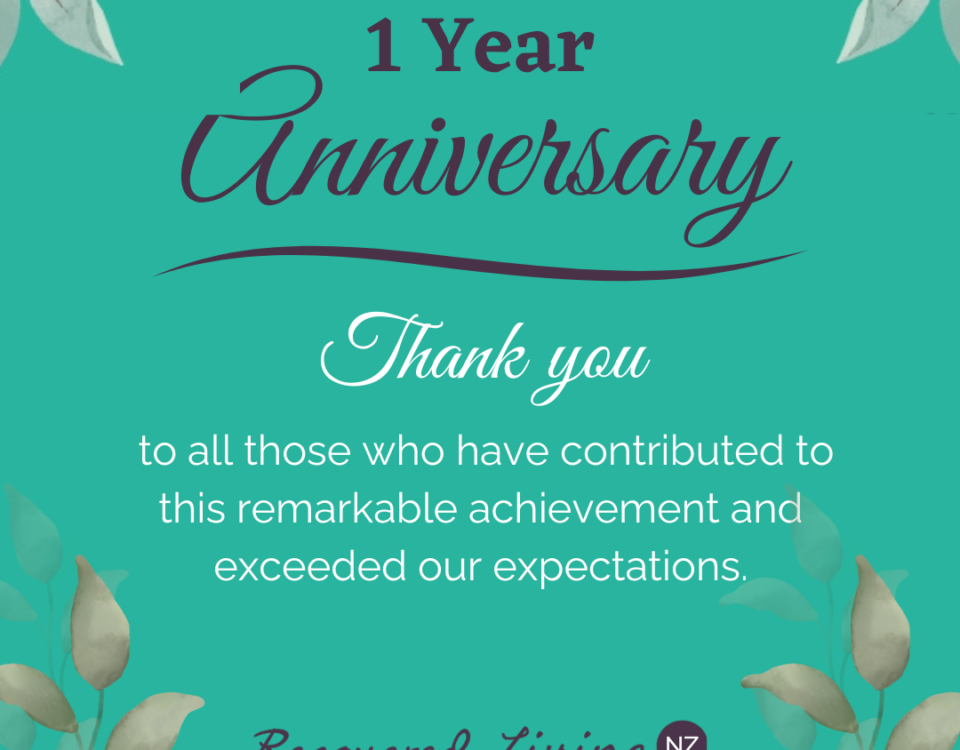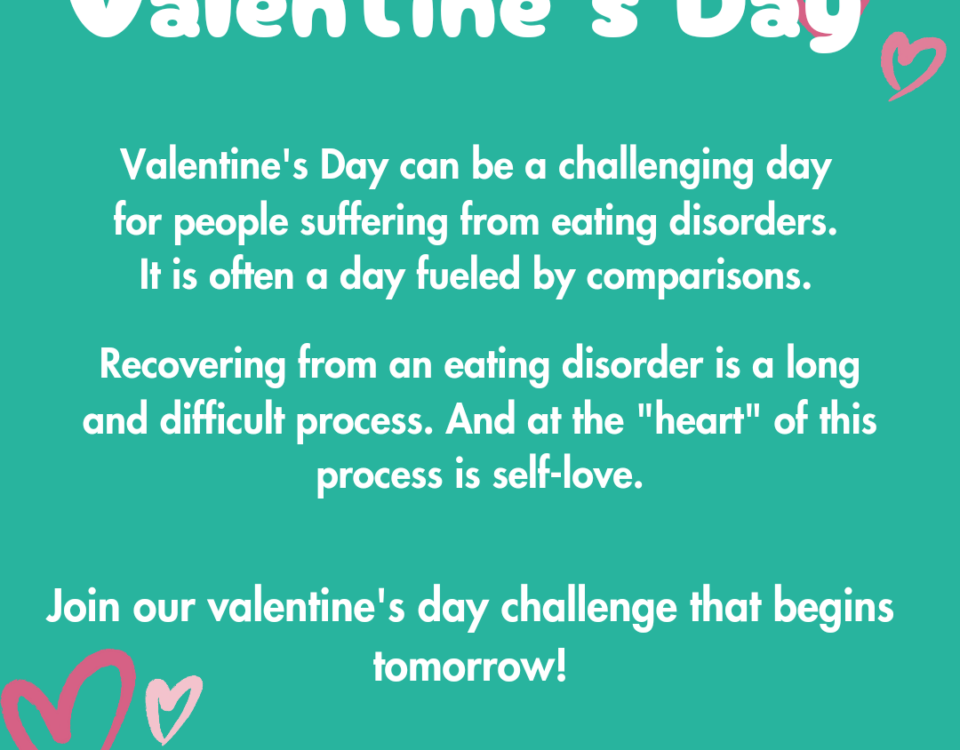Emotional Reasoning
Is that really true? This week, we look at another cognitive distortion from Key Four: Feel Your Feelings, Challenge Your Thoughts in the 8 Keys to Recovery From an Eating Disorder Workbook.
Emotional Reasoning - a cognitive distortion where a person concludes that their emotional reaction proves something is true, regardless of evidence proving otherwise. Your emotions cloud your thoughts, which in turn clouds your reality.
This is something Kristie experienced when she was unwell and shares her experience below.

4. Emotional Reasoning
I felt (and saw) my body as constantly changing therefore it was true.
This was a hard one to crack. There has never been anything more disconcerting in my life than feeling, seeing and experiencing my body a certain way and having everyone around me tell me it wasn’t so. I would experience rapid shifts in my body image. I could wake up one morning feeling ok and an hour later feel as though I was wearing a giant padded suit. The feeling was as real as if my hand was on fire. Things that helped me:
1. Mantras
- Reminding myself that yes, the feeling was real but that it was a felt sense of my body and was not other people’s experience of me.
- That I had tried for 14 years to change my body and it hadn’t worked. I was going to try really hard for 1 year to change my mind about my body.
- The problem wasn’t so much my body as my hyper-fixation on my body.
- The awareness that the very fact my body image changed from hour to hour was proof it was in my mind rather than my body. The only thing that had changed in the last hour or day was my perception.
- That feeling full might feel the same as feeling fat but that it would change with time (it did!).
2. Education on what makes up our body image
I thought my body image was just about how I saw myself. Through working with my therapist I learned that there was so much more that went into what made up my ‘self-image’:
- What we ‘see’ in the mirror. This is a hot topic. The colour green my eyes see might be a different colour green to what your eyes see. How do we know that our eyes see accurately? What is accurate anyway? How do we know we aren’t all brains in a giant vat stirred by a mad scientist? More importantly, why does what we see matter so much? Our self-image is made up by just 15% of what we see. So what is the other 85%?
- Your felt sense of how you experience your body. Remember ‘emotional reasoning’ as one of the cognitive distortions? Let’s try an experiment... Imagine that you have bags under your eyes. I want you to almost lean into the feeling of the bags under your eyes, feel their heaviness dragging the skin down underneath your eyes. Imagine the feeling of the weight of the bags. Now, shake that feeling off! In the past 20 seconds have you developed bags under your eyes? Of course not! I’ll bet even now you are a little more aware of the inch of skin under your eyes though... and that was just 10 seconds of conditioning. Imagine a week or a month or a year of negative feelings and thoughts about your body. Felt sense can be extremely powerful. Rather than trying to imagine you have youthful skin or fresh skin under your eyes, the aim is to redirect the focus of your attention. You can focus on another part of your body that you don’t have a negative attachment to or you can use your other senses like smell, sound, sight or taste. Felt experience is like a toddler in time out – no matter what, even if you don’t pay attention to it, it is just going to create noise and disruption. It is in a permanent time out!
- Your beliefs and experiences of having a body. What beliefs do you hold about your body? What experiences have you had of having a body? Have you been bullied for your body? Have you seen others be bullied for their bodies? Or perhaps you were praised for your body type or saw others being praised. Both positive and negative experiences of bodies – yours and others, all contribute to your own beliefs and experiences
3. Behaviour
Because of the beliefs you have about your body, how do you alter your behaviour? Do you body check? Exercise? Hide in baggy clothes? Isolate? Hold your stomach in? Workout to focus on certain areas of your body? All of these behaviours your brain has dreamed up to help minimise the anxiety you feel... except it is short term relief because what your brain learns is that in order to feel relief it needs to do the behaviour. And so, wearing baggy clothes might start as ‘when I feel bad about myself’ and then migrate into ‘anytime I’m in public’ to ‘all the time’. All of a sudden you aren’t getting the same relief, so your brain comes up with a new behaviour that is body centric. Each time you wear baggy clothes because of discomfort, you are actually training your brain that yes, there is a problem, and the solution is to hide. Undoing body centric behaviours is hard to do but the good news is it can absolutely be done. Changing these behaviours feels worse in the beginning but if you stick with it and do the work, these behaviours, thoughts and feelings can become a thing of the past!
I’ve been recovered for years now and there are times when I notice that my body has changed... like if I’m bloated. The change doesn’t feel extreme like it used to and I am able to be rational about it now and recognize that my body has shifted slightly. What I do differently is notice the shift and... let it go. This is a skill that takes some time to learn. You can start to learn this skill by practicing the suggestions below:






